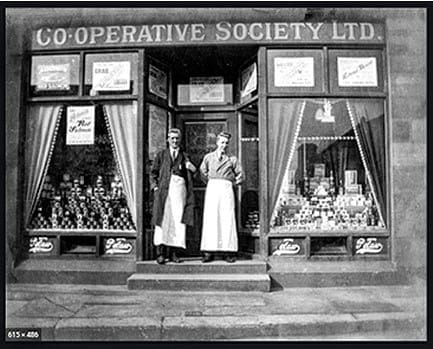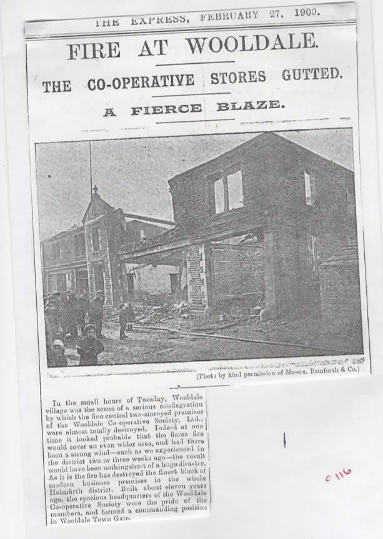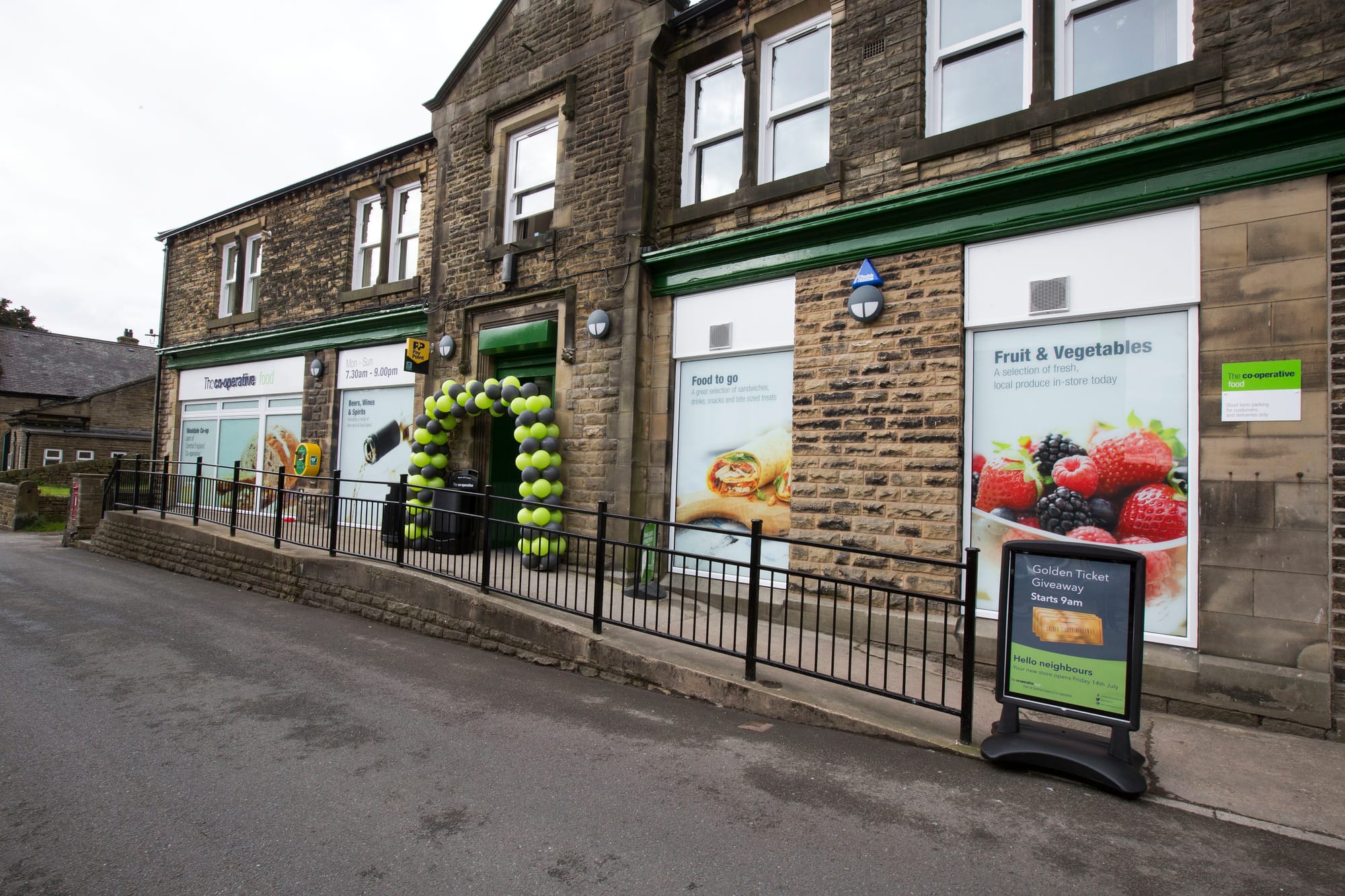
The History of the Wooldale Co-operative Society
Date Published: 29/05/2024 | Blog category: Northern
As May marks Local and Community History Month, we've been delving into the archives and learning all about co-operative history.
In the late 19th century, the Wooldale Co-operative Society emerged as a response to the heavy indebtedness of villagers to local shopkeepers. This financial strain prompted a group of forward-thinking individuals to explore the concept of co-operation as a solution. With discussions evolving from casual chats in cottages to purposeful meetings by early 1886, the Society's formation gained momentum. Assisted by Emmanuel Booth from the Co-operative Union, guarantees were secured from twenty individuals, laying the foundation for the Society's establishment.
Officially registered as the Wooldale Industrial and Equitable Co-operative Society Ltd. in September 1886, the Society commenced operations with the opening of its first shop on July 17th, 1886. Managed by 17-year-old Jabez Hoyle, the shop quickly gained traction, achieving a weekly trade of about £25. Initial financial reports showed a promising surplus, reflecting the Wooldale community's enthusiasm. By October 1st, 1886, the Society boasted 57 members, each spending an average of 9s weekly, highlighting early success and support.
However, as trade and membership grew, the original premises became inadequate, leading to the construction of a new shop in 1890. This expansion foresaw future needs, with additional purchases of old cottages for further extensions. Throughout its formative years, the Society's leadership demonstrated courage and foresight, guiding its steady progress and evolution.
The New Mill Branch
Responding to requests from New Mill and neighbouring areas, the Society opened a branch in 1893, catering to the growing demand for co-operative services. Rapid success prompted further extensions by 1898, establishing the New Mill branch as a significant contributor to the Society's operations. Diversification also marked this period, with the inclusion of boot and shoe repairs in 1895, followed by the adoption of a small savings bank in 1899.
The early 20th century witnessed continued expansion and innovation within the Society. House-building ventures in 1904 and 1914 provided housing for members, reflecting a commitment to community welfare. Educational initiatives, including the establishment of an Education Department and a Women's Co-operative Guild branch, underscored the Society's broader social impact.
The Great Fire of 1909
A defining moment in the Society's history was the Great Fire of 1909, which nearly destroyed its Central premises. Discovered in the early hours of February 23rd, 1909, the fire prompted a coordinated effort to control the blaze. Despite the destruction of grocery and butchery stocks, along with the corn warehouse, essential documents were salvaged from the safes.
The estimated damage of £3,500 prompted immediate reorganisation, with temporary premises established and new Central premises completed by August 1910. Despite the setback, the Society's resilience prevailed, leading to continued growth and expansion in the aftermath of the fire.

A Time of Challenge and Progress
Following the Great Fire, the Society entered a period of significant progress, buoyed by sound financial management and expanded services. Weathering the challenges of the First World War and subsequent economic downturns, the Society maintained its financial stability, reflecting a robust co-operative model.
The 100th Report and Balance Sheet for the half-year ended January 1936 showcased the Society's remarkable growth, with sales reaching £17,978 12s. 4d., an average of nearly £700 per week. Dividend rates were 3s. 2d. on general purchases and 1s. on corn and coal, indicating the Society's continued prosperity.
Wooldale Co-ops Today
In 2017, recognising the shared values and goals between Central Co-op and Wooldale Co-operative, our respective boards and management teams made the strategic decision to unite our efforts. This collaboration aimed to enhance the local offerings for Wooldale Co-operative customers and members while leveraging the strengths of both Societies. With over 130 years of history in the local area, Wooldale Co-operative Society had been deeply embedded in the community, operating three food retail stores and employing 40 colleagues. Following the merger, all employees were seamlessly transferred to Central Co-op, ensuring continuity of service and commitment to the Holme Valley region. Today, these stores in New Mill, Thongsbridge and Wooldale continue to serve as vital community hubs, embodying the spirit of co-operative enterprise and community resilience.

The Co-operative Legacy
The Wooldale Co-operative Society's legacy is a testament to collective effort and community spirit. From its humble beginnings, it has evolved into a cornerstone of daily life in Wooldale, embodying the principles of shared ownership and democratic trading. The Society's journey is characterised by perseverance, innovation and unwavering community support, serving as an inspiration for future generations.



